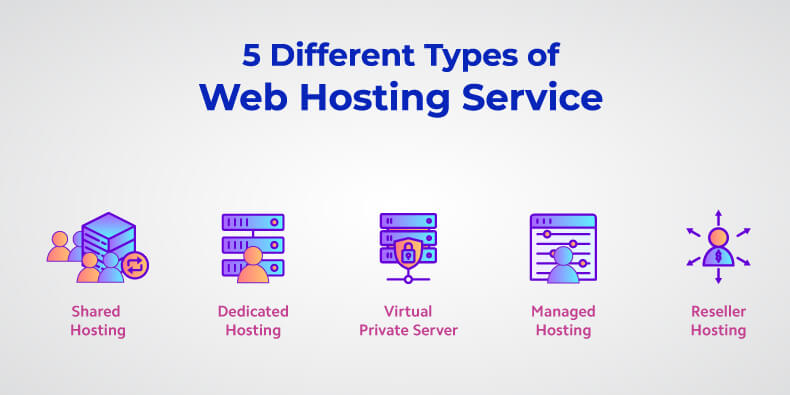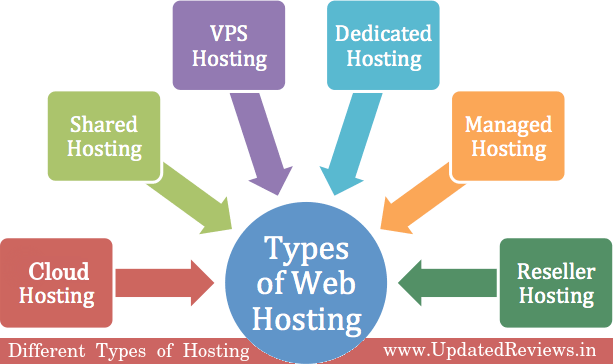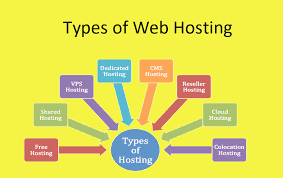WEB Hosting Server – In the digital era, having a reliable web hosting server is crucial for businesses and individuals alike. But what exactly is a web hosting server? Essentially, it’s a specialized type of server that stores website files and makes them accessible to users on the internet. Whether you’re running a personal blog or managing a large e-commerce site, the quality of your hosting server can significantly impact your online presence.
Types of Web Hosting Servers

There are several types of web hosting servers available, each catering to different needs and budgets:
Shared Hosting
Shared hosting is the most economical option, where multiple websites share resources on the same server. While it’s affordable, it may not offer the same level of performance and security as other hosting options.
VPS (Virtual Private Server) Hosting
VPS hosting provides a more stable and scalable environment by dividing a physical server into multiple virtual servers. Each VPS operates independently, offering better control and performance than shared hosting.
Dedicated Server Hosting
With dedicated server hosting, you get exclusive access to an entire server, allowing for maximum performance and customization. This option is ideal for high-traffic websites that require robust resources and security.
Cloud Hosting
Cloud hosting utilizes multiple servers working together to host websites, offering scalability and redundancy. It’s a flexible solution that allows you to pay for resources as needed, making it suitable for growing businesses.
Factors to Consider When Choosing a Web Hosting Server
When selecting a web hosting server, it’s essential to consider various factors to ensure you get the right fit for your needs:
Performance and Reliability
Look for a hosting provider with a proven track record of uptime and fast loading times to ensure a seamless user experience. web hosting server, host website, web host, website hosting, hostinger price, site web hosting
Scalability
Choose a hosting solution that can accommodate your website’s growth without compromising performance or requiring frequent upgrades.
Security Features
Prioritize hosting providers that offer robust security measures, such as SSL certificates, firewalls, and malware scanning, to protect your website and data from cyber threats.
Customer Support
Opt for a hosting provider with responsive customer support that can assist you promptly in case of any issues or concerns.
Benefits of Using a Reliable Web Hosting Server

Investing in a reliable web hosting server offers several benefits for your website and online presence:
Improved Website Performance
A fast and reliable hosting server ensures quick page load times and smooth navigation, leading to a positive user experience and higher engagement.
Enhanced Security
Advanced security features protect your website from hackers, malware, and other online threats, safeguarding your data and reputation.
Better Uptime
A reliable hosting server minimizes downtime, ensuring that your website remains accessible to users around the clock, enhancing reliability and trustworthiness.
How to Set Up a Web Hosting Server
Setting up a web hosting server involves several steps to ensure optimal performance and security:
Choosing a Hosting Provider
Research different hosting providers and compare their plans, pricing, and features to find the best fit for your needs and budget.
Selecting a Hosting Plan
Choose a hosting plan that aligns with your website’s requirements, considering factors such as storage space, bandwidth, and scalability options.
Configuring the Server
Once you’ve chosen a hosting provider and plan, follow their instructions to set up and configure your server, including installing necessary software and security measures.
Common Issues with Web Hosting Servers
Despite their benefits, web hosting servers may encounter various issues that can affect performance and reliability:
Downtime
Server downtime can disrupt access to your website, leading to lost revenue and damage to your brand reputation. Regular monitoring and maintenance can help minimize downtime.
Slow Loading Times
High traffic or inadequate server resources can cause slow loading times, frustrating visitors and impacting search engine rankings. Optimizing website performance and upgrading server resources can address this issue.
Security Vulnerabilities
Cyberattacks, such as malware infections and DDoS attacks, pose significant threats to web hosting servers and websites. Implementing robust security measures and staying vigilant against potential threats can mitigate these risks.
Tips for Optimizing Web Hosting Server Performance
To ensure optimal performance and reliability of your web hosting server, consider implementing the following optimization techniques:
Regular Updates and Maintenance
Keep your server software and applications up to date with the latest security patches and performance enhancements to prevent vulnerabilities and ensure smooth operation.
Content Caching
Utilize caching mechanisms to store frequently accessed website content closer to users, reducing server load and improving page load times.
Utilizing CDN (Content Delivery Network)
A CDN distributes your website’s content across multiple servers worldwide, reducing latency and improving performance for users regardless of their location.
The Future of Web Hosting Servers
As technology continues to evolve, so do web hosting servers. Emerging technologies and trends are shaping the future of hosting, including:
- Edge Computing: Bringing computing resources closer to the end-user for faster processing and reduced latency.
- Serverless Architecture: Abstracting server management for simplified deployment and scalability.
- Green Hosting: Promoting eco-friendly practices to minimize the environmental impact of data centers.
Downtime
Server downtime can be caused by various factors such as hardware failures, software glitches, or even maintenance activities. While it’s impossible to completely eliminate downtime, reputable hosting providers strive to minimize it by implementing redundancy measures and performing regular maintenance during off-peak hours.
Slow Loading Times
Slow loading times can frustrate visitors and adversely affect user experience and SEO rankings. Common causes include insufficient server resources, poorly optimized websites, or excessive traffic. To address this issue, website owners can optimize their website’s code, compress images, and leverage caching mechanisms to deliver content more efficiently.
Security Vulnerabilities
Web hosting servers are prime targets for cyberattacks due to the sensitive data they store and the potential impact of compromising websites hosted on them. Security vulnerabilities can arise from outdated software, weak passwords, or inadequate security configurations. To mitigate these risks, it’s essential to keep server software up to date, implement robust access controls, and regularly monitor server activity for signs of unauthorized access or malicious activity.
Tips for Optimizing Web Hosting Server Performance (continued)

Regular Updates and Maintenance
Regular updates and maintenance are crucial for keeping web hosting servers secure and performing optimally. This includes applying security patches, updating software and drivers, and performing routine checks for hardware issues. By staying proactive with maintenance tasks, server administrators can minimize downtime and prevent security breaches.
Content Caching
Content caching is a technique used to store frequently accessed website content closer to the end-user, reducing the time it takes to retrieve data from the server. By caching static assets such as images, CSS files, and JavaScript libraries, web servers can serve content more efficiently, resulting in faster page load times and improved user experience.
Utilizing CDN (Content Delivery Network)
A Content Delivery Network (CDN) is a network of servers distributed across multiple geographic locations, designed to deliver website content to users from the nearest server location. By leveraging a CDN, website owners can reduce latency, improve load times, and handle traffic spikes more effectively. Additionally, CDNs offer built-in security features such as DDoS protection and SSL encryption, enhancing website security.
The Future of Web Hosting Servers (continued)
Edge Computing
Edge computing is a paradigm shift in which computational resources are moved closer to the point of data generation or consumption, reducing latency and bandwidth usage. By deploying servers at the network edge, organizations can deliver faster and more responsive services to end-users, particularly in applications requiring real-time data processing or low-latency interactions.
Serverless Architecture
Serverless architecture, also known as Function as a Service (FaaS), abstracts server management away from developers, allowing them to focus on writing code without worrying about infrastructure provisioning or maintenance. By leveraging cloud platforms such as AWS Lambda or Google Cloud Functions, developers can build scalable and cost-effective applications that automatically scale based on demand, without the need for dedicated server instances.
Green Hosting
As environmental concerns continue to grow, there is a growing emphasis on sustainability in the data center industry. Green hosting providers are adopting energy-efficient technologies such as solar panels, wind turbines, and advanced cooling systems to minimize their carbon footprint and reduce reliance on fossil fuels. By choosing green hosting solutions, businesses can align their online operations with their sustainability goals and contribute to a greener, more environmentally friendly internet.
Conclusion
In conclusion, a reliable web hosting server is essential for ensuring the performance, security, and scalability of your website. By understanding the different types of hosting servers, considering key factors when choosing a provider, and implementing optimization techniques, you can create a robust online presence that meets your needs and exceeds your expectations.
FAQs
- What is a web hosting server? A web hosting server is a specialized computer that stores website files and makes them accessible to users on the internet.
- How does a web hosting server work? Web hosting servers use software to process requests from web browsers and deliver website content to users via the internet.
- What are the different types of web hosting servers? The main types of web hosting servers include shared hosting, VPS (Virtual Private Server) hosting, dedicated server hosting, and cloud hosting.
- How do I choose the right web hosting server for my website? Consider factors such as performance, scalability, security features, and customer support when selecting a web hosting server that meets your needs.
- Can I switch web hosting servers easily if needed? While switching web hosting servers can be challenging, many providers offer migration assistance to help you transfer your website seamlessly to a new server.
